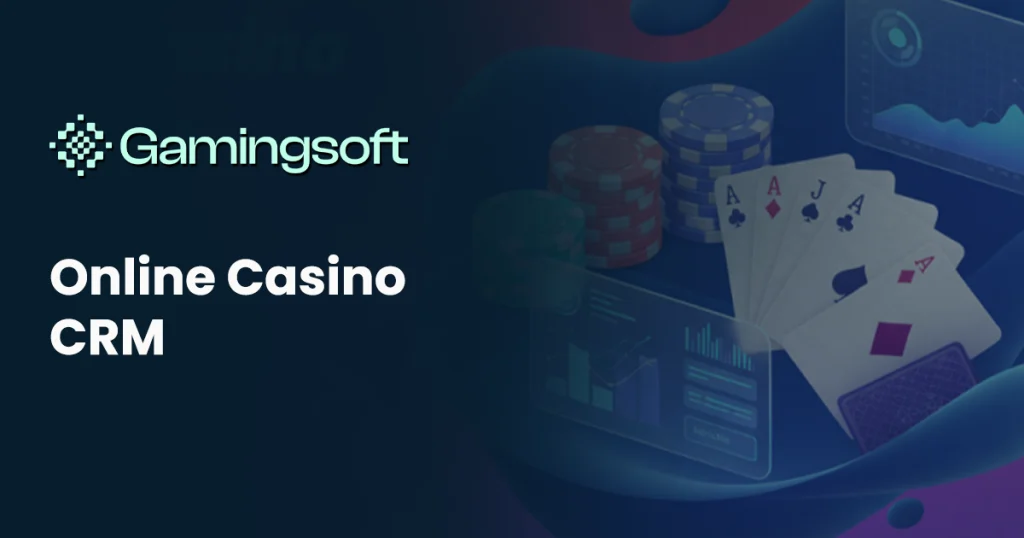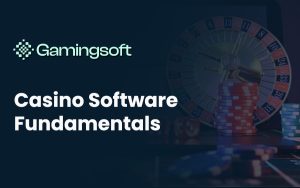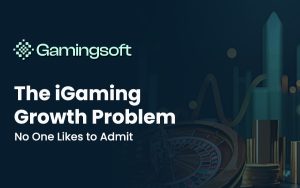Online Casino CRM is more than a database—it’s the backbone of personalized player engagement. When implemented strategically, it becomes the key differentiator that separates sustainable casinos from the rest, as detailed in “Why Online Casinos Need CRM“.
For iGaming operators, CRM is more than a database. It’s the foundation for every meaningful interaction, helping you transform casual visitors into loyal players. From personalizing promotions to tracking player behavior and automating outreach campaigns, a robust CRM allows your brand to stay responsive and human — even at scale.
The challenge, however, is that many casinos still treat CRM as an optional tool rather than an operational core. The truth is, without CRM-driven insights, you’re flying blind — making decisions based on assumptions rather than actual player data.
Let’s break down why CRM systems have become indispensable for online casinos, and how they can help you create stronger, smarter relationships with your audience.
Why CRM Matters for Online Casinos
The online gaming industry thrives on data. Every spin, bet, deposit, and click tells a story about what motivates your players. But raw data is useless unless it’s turned into insight — and that’s exactly what a CRM does. It organizes every touchpoint, builds behavioral profiles, and provides the clarity needed to make confident business decisions.
A well-integrated online casino CRM can reveal which games drive repeat visits, when players are most likely to churn, and what type of campaigns resonate best. This visibility turns guesswork into strategy.
1. Personalization that Drives Loyalty
Personalization isn’t just a marketing buzzword — it’s the key to retention. Modern players expect the same level of customized experience they get from entertainment platforms like Netflix or Spotify. A CRM enables this by capturing preferences, bet histories, and engagement patterns, then using them to deliver personalized offers or content at the right time.
For instance, an operator could send a tailored bonus to a player who frequently enjoys blackjack, or offer free spins during their peak activity hours. Over time, this relevance creates emotional connection — and that’s what builds loyalty.
A study on digital CRM models in gaming also found that personalized engagement increases player retention by over 35%, reinforcing that relevance is the new currency of trust (Springer Journal, 2025).
2. Streamlining Customer Support and Operations
Beyond marketing, a CRM centralizes communication across support, marketing, and compliance teams. Instead of juggling multiple dashboards, your staff can access player history, previous complaints, and activity patterns in one place.
This unified view enables faster responses and better decision-making. For example, when a player reports an issue, the support team can instantly see whether they’ve recently made a deposit, claimed a bonus, or experienced technical issues. This context makes interactions smoother, more efficient, and more human — a crucial advantage in an industry where trust defines brand reputation.
If your goal is to improve service consistency, it’s worth exploring “How Online Casino Customer Support” integrates with CRM frameworks to create seamless experiences from the first inquiry to the final payout.
Features of an Effective Online Casino CRM
Not every CRM system is built for the complex world of iGaming. Traditional customer management tools often struggle with high-frequency transactions, multi-platform integrations, and real-time behavioral data. That’s why online casinos need CRM solutions tailored to the rhythm of gaming — fast, dynamic, and data-driven.
Here are the essential features that make a CRM for online casinos truly effective in practice.
1. Advanced Player Segmentation
Every player is unique, but managing thousands of profiles manually isn’t feasible. Segmentation allows casinos to group players based on data-driven criteria — such as deposit frequency, preferred games, engagement time, or spending level.
These segments form the foundation for personalized campaigns. For example, VIPs may receive exclusive event invitations, while inactive users get reactivation offers. With clear segmentation, marketing efforts become more efficient and less intrusive, improving both ROI and player satisfaction.
Segmentation also powers automated retention workflows — ensuring that no player falls through the cracks.
2. Real-Time Behavioral Analytics
In iGaming, timing determines success. A CRM equipped with real-time analytics helps operators monitor player activity and react instantly to key triggers. If a player shows signs of frustration, such as rapid losses or session drop-offs, the system can automatically initiate a retention sequence — maybe a personalized email or bonus offer to re-engage them.
This capability transforms your CRM from a passive database into an intelligent assistant. Over time, these micro-adjustments add up to measurable improvements in retention and lifetime value.
3. Automated Campaigns and Communication
Automation sits at the heart of a high-performing casino CRM. Instead of manually managing newsletters or bonus reminders, the system can automatically trigger messages based on player behavior.
For example:
- Send a welcome offer immediately after registration
- Deliver a bonus reminder when a deposit milestone is reached
- Recommend new games when players’ interests shift
These timely, behavior-based automations create a sense of care and personalization — without requiring additional manpower.
In fact, a 2025 CRM adoption report found that automation reduces marketing overhead by nearly 28% while improving engagement metrics (SSRN, 2025).

4. Cross-Department Integration
A casino’s CRM doesn’t operate in isolation. It should connect seamlessly with payment systems, affiliate platforms, and game providers. This integration allows departments — from marketing to compliance — to access the same up-to-date player insights.
For instance, marketing can target high-value segments based on deposit data, while compliance can monitor responsible gaming thresholds in real time.
Integrating CRM with systems like GamingSoft Connect ensures that your operations—from marketing to compliance—flow seamlessly across every channel. You can see this approach in practice in “Leveraging CRM Solutions for Sustained Success in Online Casinos“.
5. Predictive Analytics and AI Insights
Modern CRM platforms go beyond tracking the past — they predict the future. Using machine learning, they can identify which players are likely to churn, which campaigns will perform best, and how to adjust rewards for maximum retention.
For example, predictive scoring might highlight a group of players whose activity has declined by 20% over two weeks. The CRM can automatically enroll them in a win-back campaign featuring tailored bonuses or exclusive events.
This is where iGaming intersects with true data science — transforming intuition into measurable foresight.
From Data to Decisions
Collecting data is easy; interpreting it effectively is what defines great CRM strategy. Tools like cohort analysis, churn modeling, and LTV projections help casino operators make smarter marketing investments.
The goal isn’t to drown in metrics but to translate analytics into action — decisions that improve player experiences and increase profitability. Academic research also supports this approach, noting that data-driven CRM adoption correlates directly with organizational adaptability and long-term growth (CSUSB Study, 2024).
Implementing CRM for Sustainable Growth
Building or buying a CRM is only the first step — the real challenge lies in implementation. Many casinos invest in sophisticated systems but fail to align them with their actual workflows. To make your online casino CRM deliver results, it needs to be part of your daily operations, not an isolated marketing tool.
The most successful implementations follow a few key principles: start small, scale smart, and let the data guide your decisions.
1. Start with Measurable Objectives
Every CRM rollout should begin with clear goals. Do you want to increase player retention by 10%? Reduce support resolution time? Improve conversion rates from demo to deposit?
Defining measurable KPIs allows you to evaluate performance objectively. Once the initial benchmarks are set, automation and segmentation can be built around them — ensuring your CRM supports your core business targets, not just vanity metrics.
2. Centralize Data for a Unified Player View
Casinos often operate across multiple data silos — payment logs, affiliate systems, email platforms, and game servers. A good CRM bridges these systems, consolidating everything into a single view of the player.
This unified approach helps every team, from marketing to compliance, make faster, data-backed decisions. Imagine being able to instantly identify your top 100 players, see their lifetime value, favorite games, and preferred bonuses — all in one dashboard. That’s the level of control a modern CRM provides.
3. Leverage Automation Without Losing the Human Touch
Automation is powerful, but it should never feel robotic. The goal is to use CRM workflows to enhance personalization, not replace it. For example, instead of sending mass promotions, you can create dynamic campaigns that change tone and content based on user behavior.
Automated doesn’t mean impersonal — it means precise. The combination of human creativity and machine intelligence is what elevates CRM marketing from good to exceptional.
4. Encourage Collaboration Across Teams
CRM success doesn’t belong to one department. Marketing might own the campaigns, but player insights are also invaluable to operations, finance, and even product design.
When teams share data and goals, patterns emerge faster: support learns what players complain about most, developers understand which features increase retention, and marketing identifies which promotions actually convert. A collaborative CRM culture creates a feedback loop that continuously strengthens the brand.
5. Measure, Learn, and Iterate
The beauty of digital CRM systems is that nothing stays static. You can test, measure, and refine campaigns in real time. Monthly performance dashboards should include not just conversion numbers, but engagement quality — how often players return, how long they stay active, and how they interact with your content.
By turning every insight into an opportunity for iteration, casinos stay adaptable in an industry where player behavior changes overnight. That adaptability is exactly what turns CRM from a tool into a long-term growth strategy.
Conclusion: Turning Relationships into Revenue
At its heart, a CRM is about relationships — understanding players, anticipating their needs, and rewarding their loyalty. In an industry where competition is fierce and attention spans are short, mastering player relationships becomes your most reliable growth driver.
A well-implemented online casino CRM does more than manage data. It gives your business vision — allowing you to see not just what players do, but why they do it. That understanding transforms how you communicate, promote, and design your gaming experience.
If you’re ready to upgrade your platform and unlock the full potential of seamless CRM integration, explore GamingSoft Connect.
It’s not just a connection hub — it’s a next-generation infrastructure designed to unify data, automate engagement, and give iGaming operators total control over their player ecosystem.
Because at the end of the day, growth doesn’t come from more players — it comes from stronger relationships with the right ones.





